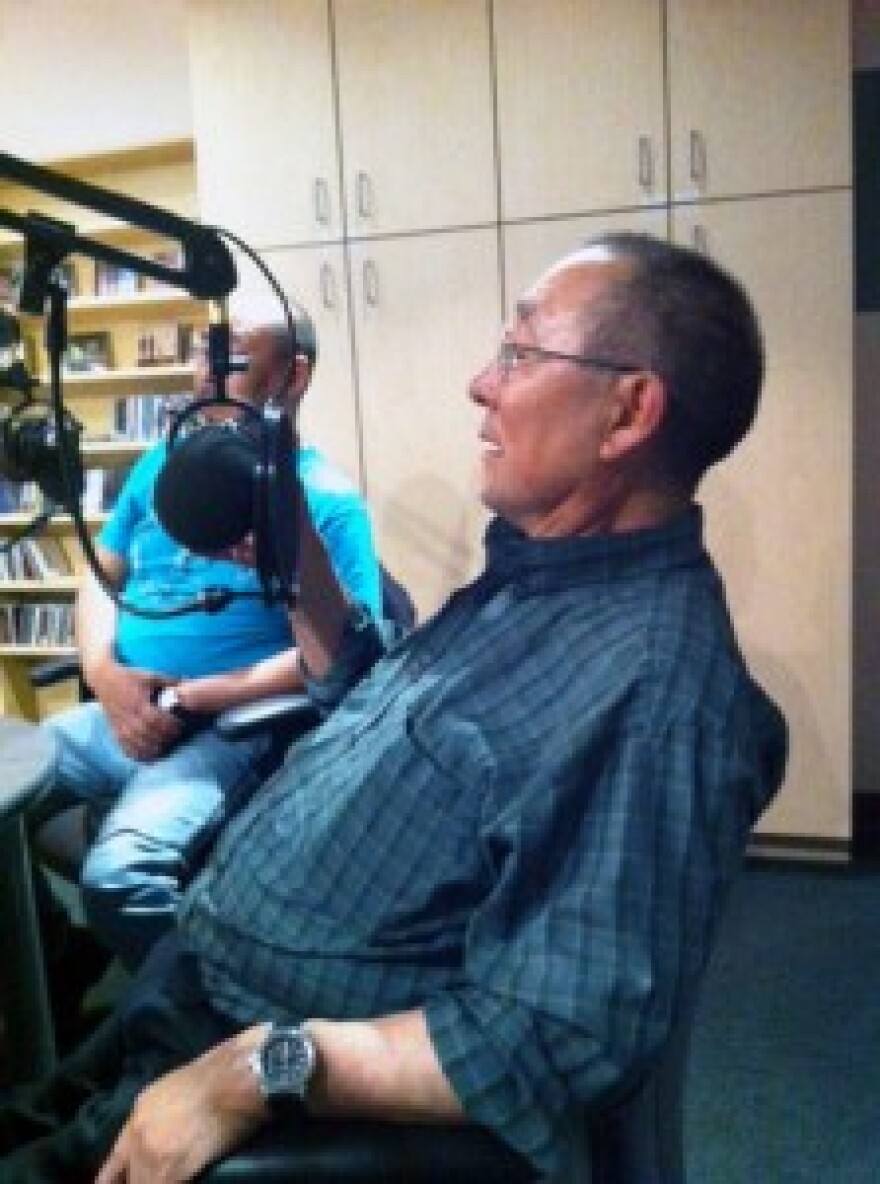Two representatives from the village of Newtok and an immigration specialist are traveling to the Carteret Islands in Papua New Guinea this week to meet with islanders there and share information about how to take charge of plans for relocating communities vulnerable to coastal erosion. Stanley Tom is the tribal administrator for the traditional council in Newtok, a Yupik community of around 400 about 90 miles west of Bethel. In an interview before leaving Alaska,Tom said Newtok is moving forward with their own plans for relocating and training community members for jobs building an emergency evacuation center in September.
“So we are excited to build our own community and I did send in about 17 students to certify them at Kotzebue so I have carpenters, laborers, electricians. They all certified and we’re just excited to build our new community,” Tom said.
Tom says they’ve built three houses in the new village site and are working on three more. He says he’s hoping to learn from the Carteret Islanders and work with them to help other vulnerable communities. The Carteret islanders are relocating because of rising sea levels. They’ve been called the world’s first environmental refugees. Tom says for Newtok, erosion and flooding risks are increasing at a rapid pace and the village has sunk below sea level.
“The rain is coming in, it’s pushing the land lower and lower, we’re like minus 30 feet from sea level right now so we are a really flood prone area. The erosion is coming in, we’re losing already 30 to 50 feet already and it’s coming in. I mean our water source is about 154 feet right now as we speak and once that water source is impacted, where will we get our water?,” Tom said.
Stanley’s cousin George Tom is also part of the delegation to the South Pacific. George is 64 and has lived in the Newtok area all his life, but he says the original village was farther inland and was only moved closer to the coast because of the federal government.
“Because they were planning to build a BIA school at that time when I was growing up in the old village site but the barges couldn’t come in, couldn’t go inland,” he said.
So the village was moved to where supplies could be more easily delivered.
Robin Bronen helped spearhead the effort in bringing the Alaska and New Guinea communities together. Bronen is the Executive Director of the Alaska Immigration Justice Project. She says she’s been observing the relocation process in Newtok since 2007 and started researching other efforts internationally. She found the Carteret islanders, who are moving to a bigger island. She says relocations in the past were always forced moves perpetrated by governments, but the two communities meeting in the South Pacific right now are changing that.
“And what the Newtok traditional council and Tulele Peise are doing is creating a different model, that I believe needs to be implemented. We need to figure out how this form of relocation can be the precedent setting model where you have communities actually making all the decisions, regarding whether they relocate, where they relocate and how they relocate,” Bronen said.
Bronen says funding is always an issue. She says following a disaster, money for rebuilding is often available, but accessing those funds usually requires rebuilding in the same place instead of in a stable area that won’t be ravaged by coastal storms and erosion.
George Tom says when his village can move to the new location, they will no longer have to worry about salt water compromising their fresh water supply.
“The new village site is promising ‘cause it’s higher ground. It’s more fresh water, mountain water. Water so close you can just go outside, dip your cup and drink,” Tom said.
Bronen says the next phase of the project is for the people of the Carteret Islands to come to Alaska next spring or fall and then a combined delegation will travel to Washington DC to work with other affected communities through the center for international environmental law and the UN environment program.


